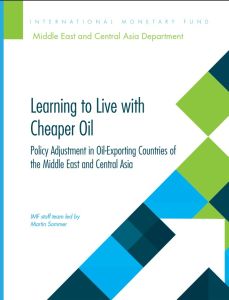Join getAbstract to access the summary!

Join getAbstract to access the summary!
Martin Sommer, Greg Auclair, Armand Fouejieu, Inutu Lukonga, Saad Quayyum, Amir Sadeghi, Gazi Shbaikat, Andrew Tiffin, Juan Trevino and Bruno Versailles
Learning to Live with Cheaper Oil
Policy Adjustment in Oil-Exporting Countries of the Middle East and Central Asia
IMF, 2016
What's inside?
Oil-producing nations need to diversify their economies to thrive over the long term.
Recommendation
Low oil prices have brought profound and perhaps lasting changes to the economies of oil-producing countries in the Middle East and North Africa and in the Caucasus and Central Asia. According to regional experts at the International Monetary Fund, yawning budget deficits and slowing growth have replaced budget surpluses and economic expansion in these nations. getAbstract recommends this authoritative report on what’s next for these economies to executives, analysts and investors.
Summary
About the Authors
Martin Sommer et al. are members of the International Monetary Fund’s Middle East and Central Asia department.






















Comment on this summary